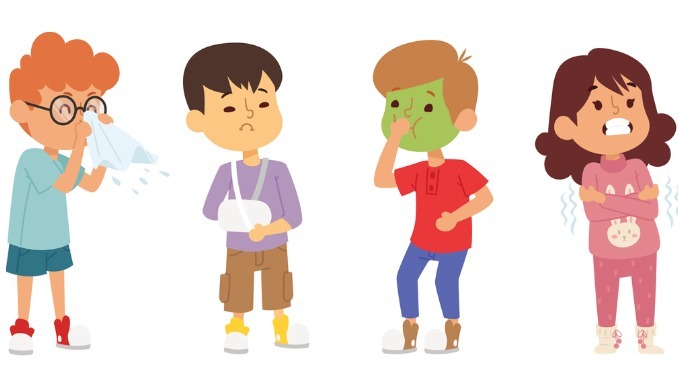
As reported by BBC News, as the new school term begins, health officials urge schools to inform parents to follow simple measures, to curb the spread of common viruses
Advice from health officials ranges from teaching good hygiene habits to stopping the spread of bugs and knowing when to keep your child at home.
Winter often sees a rise in common viruses like chickenpox, norovirus and flu which can keep children off school.
UK health officials say by following the advice parents can protect them as well as the wider community.
Their advice comes as many children return to school for the spring term – but it is also when they are most likely to miss lessons.
“The winter period can see an increase in some of the common seasonal viruses which disrupt children’s education and cause more serious illnesses,” says Dr Catherine Falconer from the UK Health Security Agency (UKHSA).
The advice is to:
1. Teach good hygiene habits, such as regular hand-washing
It is one of the most effective ways to stop the spread of viruses, the experts say, because they can live on our hands.
Use soap and warm water for 20 seconds or hand sanitiser to clean hands regularly.
And to stop infections spreading, use tissues to catch coughs and sneezes, bin them afterwards and then wash hands (again).
2. Stop the spread of stomach bugs
Sickness bugs such as norovirus and E. coli are on the up, and that means more children could have diarrhoea and vomiting.
If affected, using bleach-based products to clean surfaces will help prevent bugs from spreading (along with washing hands with soap).
The UKHSA says not to prepare food for others if you have symptoms, or for 48 hours after they stop.
And it advises people to avoid visiting vulnerable relatives in care homes and hospitals to avoid passing anything on to them, and not to return to work, school or nursery until two days after symptoms end.
3. Know when to keep your child at home
Children should stay at home from school or nursery if they have a high temperature (fever) and are unwell, and wait until it has passed before going back.
A child with diarrhoea and/or vomiting should also wait for 48 hours before going back, to stop the spread of stomach bugs.
But if they have a runny nose, sore throat or slight cough – without a high temperature – children are encouraged to go to school, nursery or childcare.
Scarlet fever and chickenpox can also spread at this time of year, and cases usually peak in late winter and early spring, health officials say.
Scarlet fever symptoms include:
- sore throat
- fever
- swollen neck glands
- a bumpy rash on the tummy
- flushed cheeks
- “a strawberry tongue” – so called because it means the tongue looks a bit like a strawberry.
Contact your local GP if you see the signs and keep children away from school and nursery for 24 hours after the first dose of antibiotics.
Chickenpox is highly contagious – the most common symptom is an itchy, spotty rash. Keep children off school until all the spots have crusted over.
4. Get vaccinated
There is a “quick and painless” nasal spray for children which offers the best protection against flu, UKHSA says.
However, it says vaccine uptake among pre-school children is lower than other groups, despite the illness sometimes being more serious for this age group.
Find out if your child is eligible for a flu vaccine in Wales, England, Scotland and Northern Ireland.
There has also been a drop in uptake of other childhood vaccinations, which protect against diseases such as measles, mumps, rubella, diphtheria and polio.
The advice is to make sure make sure your child is up to date with all their vaccinations.
5. Take online advice from NHS resources
The health service has plenty of advice for parents, such as:



Be the first to comment